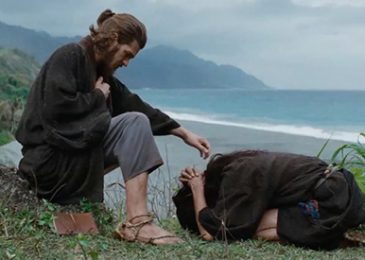As an independent filmmaker, I have the privilege of telling stories that you don’t often see coming out of the mainstream media or Hollywood studios. I relish the opportunity to work on projects that take risks—that shine a light on gems beneath unturned stones.
And yet, even I didn’t expect to find such a treasure as the woman I’ve spent the last few years uncovering. Perhaps the greatest unknown hero I’ve encountered, she has taught me about success in ways that couldn’t be more different than what our culture too often celebrates on magazine stands and social media.
In a time when instant gratification is the norm, it is easy to fall in the trap of exalting “self” and measuring success based on personal recognition. Yet during Women’s History Month, I am compelled by the life and vision of Lilias Trotter—a woman most have never heard of, but who is perhaps one of the greatest female artists of her time and whose undiscovered mark in women’s history teaches a beautiful lesson in defining success.
Born in the middle of the 19th century in London, Trotter had an uncommon eye on the world. In an era when women were thought incapable of producing high art, Trotter broke down walls—persuading one of the leading art critics of her time, John Ruskin, to believe she could be “the greatest living painter and do things that would be immortal.”
If her art and her contribution as a challenger of cultural bias against female talent were her only legacies, Trotter would be worthy of mention in the annals of women’s history. But art was only the beginning of her story.
Art was Trotter’s talent but it wasn’t her deepest passion. At the height of her work as an artist, she found a strong desire instead to serve marginalized women and children in the then dangerous, isolated world of North Africa. She gave up a dream of artistic success to follow her passion to serve in Algeria as a single woman in the late 1800s.
Trotter’s stunning decision bids us to question the true meaning of success. Could you and I follow an unglamorous conviction at the risk of sacrificing personal wealth and fame? With her artistic legacy on the line, Trotter chose to relentlessly follow her calling, which meant choosing obscurity over celebrity.
Now, Trotter is finally gaining some recognition for both her creative genius and her dedicated life of service. Many Beautiful Things, my film about Trotter, invites the world to experience a life well-lived through her journey. Nearly 100 years after Trotter’s death, her legacy continues to reach untold numbers of people.
After encountering the character of Trotter, it has changed the way I see my art, and in turn, the way I view success. This transformation has occurred by studying her remarkable viewpoint:
“Measure thy life by loss, not by gain. Not by the wine drunk, but by the wine poured forth. For love’s strength standeth in love’s sacrifice. And he who suffers most, has most to give.” (Lilias Trotter)
Trotter did not judge her worth by the number of people she reached in her lifetime or the number of her paintings that hung in galleries. She teaches me to trust more in what I believe I am called to do, regardless of the outcomes. I do not believe the takeaway from Trotter’s life is that our work should be obscure—I believe what matters is the posture towards our work.
So this Women’s History Month, I want to celebrate the example and the contributions made by this powerful woman who teaches men and women alike to measure their success not by the number of eyes and ears that see their work, but by their character and resolve to chase after meaning and true fulfillment.
Laura Waters Hinson is an award-winning documentary filmmaker and mother of two from Washington, DC. Her work spans a variety of subjects, from street vendors in Washington, DC to female entrepreneurship in Rwanda. Her documentary, As We Forgive, won the 2008 Student Academy Award for best documentary. Her latest film, Many Beautiful Things, is now available to purchase on DVD. For more information, visit manybeautifulthings.com





